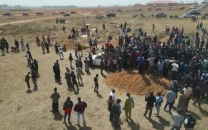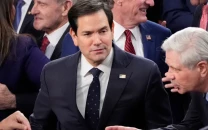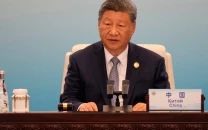The new New Delhi
Though the dependence on auto rickshaws still adheres, they aren’t the only option for the Delhi commuter anymore.

The writer is a New Delhi-based journalist and a graduate of the Columbia Journalism School. He has written for Daily Mail, GlobalPost, Gulf News and OpenDemocracy among other publications
One of the reasons I left New Delhi in late 2009 after working there for four years was the state of its public transport. Though most middle class Delhi people owned, at least, a two-wheeler, many of its denizens negotiated the city through its dreaded bus services or overcharging auto rickshaws. I was one of those.
When I started working in a newspaper in Delhi, eking out a living and paying the rent was an achievement. Having a car or motorbike was a luxury. Even if you did possess one, acclimatising to Delhi’s driving culture was another horror. Here, people broke signals or overtook you from the left. For Delhi people, spotting a car or bike without a dent was an old joke. Because there weren’t any that weren’t violated.
Auto rickshaw drivers were the godfathers of Delhi. They made you offers you couldn’t refuse. (If you did refuse, you’d be stranded where you were). In my earliest months in the city, I would mentally prepare myself to brave them. I would rehearse how I would haggle before I left home. I would brace myself as if I were going to fight a battle. (Like many middle class Indians, I had a prejudice. The prospect of being conned by someone higher than you on the money chain could be handled. But by someone beneath you, like an auto rickshaw rider, was unfathomable).
When I went back to Delhi a month ago, I found an arc of emotion and experience that marked life in Delhi vanishing. The Delhi Metro rail, which had begun installation in the early 2000s, had now reached culmination. The subway lines zigzagged their way through town. Nearly every major corner of Delhi had been linked to the centre of town. Daily, two million citizens hopped onto a world-class public transport network. On the train, travellers were (surprisingly) polite. For people stereotyped for their rudeness, Delhi folks discovered decency underground. I also found the fangs of the snakes (auto rickshaw drivers) had been yanked out. Though the dependence on auto rickshaws still adheres, they aren’t the only option for the Delhi commuter anymore. This was the new New Delhi.
Years ago, when I worked there, I also saw the other side of auto rickshaw drivers. In time, I became friends with one of them, who lived by the slum near my residential colony. This man unmasked the lives of many like him.
Delhi auto drivers weren’t owners of their vehicles. They rented them. Drivers came from the rural boondocks of rural north India. They worked in Delhi and sent money home. Most would work from 8.30am to 9pm with a lunch and tea break thrown in. Spiralling fuel costs and an increasing cost of living and other factors impinged on their lives. Current auto metre rates did not reflect those concerns. So, they overcharged. Nighttime charges began after 10pm — it was an increase of 25 per cent over the metered fare. For many auto drivers in Delhi, that time of the evening could begin as early as 7pm, depending on where in the city you were in. “We have to overcharge because we cannot live otherwise,” the driver said.
After a point, I made peace with the lay of the auto drivers’ land. One day, I asked my driver friend why Delhi auto drivers were so rude when it came to money. He said if you are not aggressive, people take you for a ride. He hesitated, and told me not to take what he would say, personally. “These people spend so much money going to malls and restaurants,” he said. “An auto fare should mean nothing.” And then he countered me, “Why do these people not haggle at hotels or malls? Why do they haggle with us poor folk?”
I kept quiet. As the trip ended, I slipped an extra 10-rupee bill, more than the fare. He looked at me and said, “Maybe next time.”
Published in The Express Tribune, April 24th, 2013.



















COMMENTS
Comments are moderated and generally will be posted if they are on-topic and not abusive.
For more information, please see our Comments FAQ